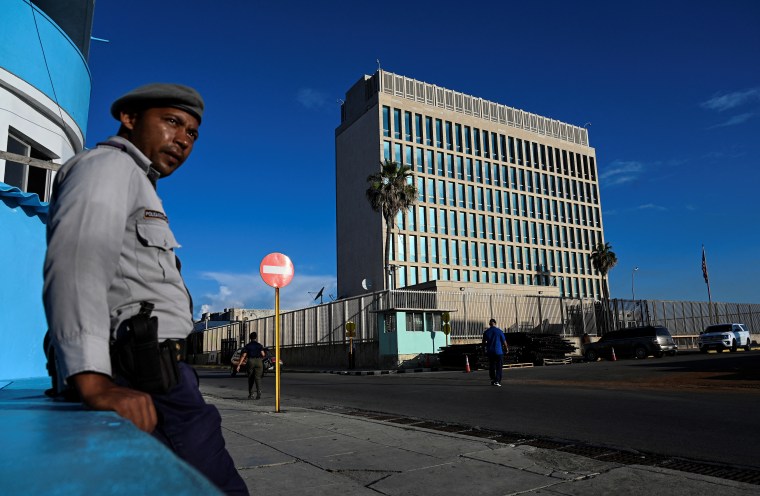Miami, October 11, 2024—CPJ is alarmed by reports that since mid-September, Cuban state security agents questioned at least eight journalists and media workers from non-state media outlets, many in connection to alleged crimes against the state, leading several to flee the country.
“The Cuban government appears to be engaged in a campaign of harassment and intimidation against the country’s non-state media to force them into silence or exile,” said Katherine Jacobsen, CPJ’s U.S., Canada, and Caribbean program coordinator, from Washington, D.C. “CPJ calls on the Cuban authorities to respect the rights of journalists to freely express themselves and report the news.”
Cuban news website El Toque, which operates from exile, reported that the journalists were summoned as part of investigations into accusations that the journalists engaged in “mercenary” activities, including receiving foreign funding in violation of state security. If convicted, the journalists face prison sentences of 4-10 years.
CPJ confirmed eight cases of journalists being questioned and is investigating more than a dozen others. Four journalists publicly confirmed they were summoned and questioned by Cuban authorities:
- Jorge Fernandez Era, a freelance writer and satirical columnist who works with El Toque, was summoned and questioned twice for an hour, reporting that authorities “expressed concern” about his writings in El Toque.
- Maria Lucia Exposito, a freelance reporter, posted on a colleague’s social media that authorities questioned her for more than 6 hours and confiscated US$1,000 and her cell phone.
- Alexander Hall, a freelance essayist who works with El Toque.
- Katia Sanchez, a freelance communications strategist who has collaborated with El Toque and SembraMedia, a nonprofit that supports digital media entrepreneurs, was questioned and threatened with prosecution by representatives from the Ministry of the Interior for receiving a U.S. embassy grant to train journalists, she told CPJ. Sanchez subsequently left Cuba on September 13.
Several journalists questioned by Cuban state security work for exiled Cuban outlets — including El Toque, Periodismo de Barrio, Cubanet, Magazine AMPM, and Palenque Vision. Government officials told CPJ they consider these journalists and the media outlets to be subsidized by funding from foreign governments, in contravention of Article 143 of the Cuban penal code.
A representative of the Cuban government’s International Press Center (CPI) told CPJ by text message that he recommended investigating whether the U.S. government financed these media outlets and pointed to U.S. law that imposes a public disclosure obligation on persons representing foreign interests. “Investigate and you will find Hypocrisy,” he wrote.
In some cases, the questioning occurred in unofficial locations by plainclothes officers, who pressured the journalists to sign confessions admitting to “subversive” acts under threat of criminal proceedings, according to four journalists who spoke to CPJ. Two journalists told CPJ they faced intense psychological pressure to confess.
Several journalists told CPJ that officers warned them to stop working as journalists outside of official state media and told them it was a crime to participate in foreign-funded training and support programs, or to receive grants from foreign governments.
One journalist told CPJ they were pressured to become a state security informant and spy on other media and foreign governments. In return, they would be free to continue work outside the state sector.
These acts come as a new social communication law, which bans independent media outlets in Cuba, went into effect on October 4. The new law was promulgated after anti-government demonstrations swept the island in July 2021, resulting in the prosecution of persons who reported or shared videos of the events online.
El Toque reported that between 2022 and 2024, at least 150 Cuban journalists went into exile due to harassment by state security agents.
